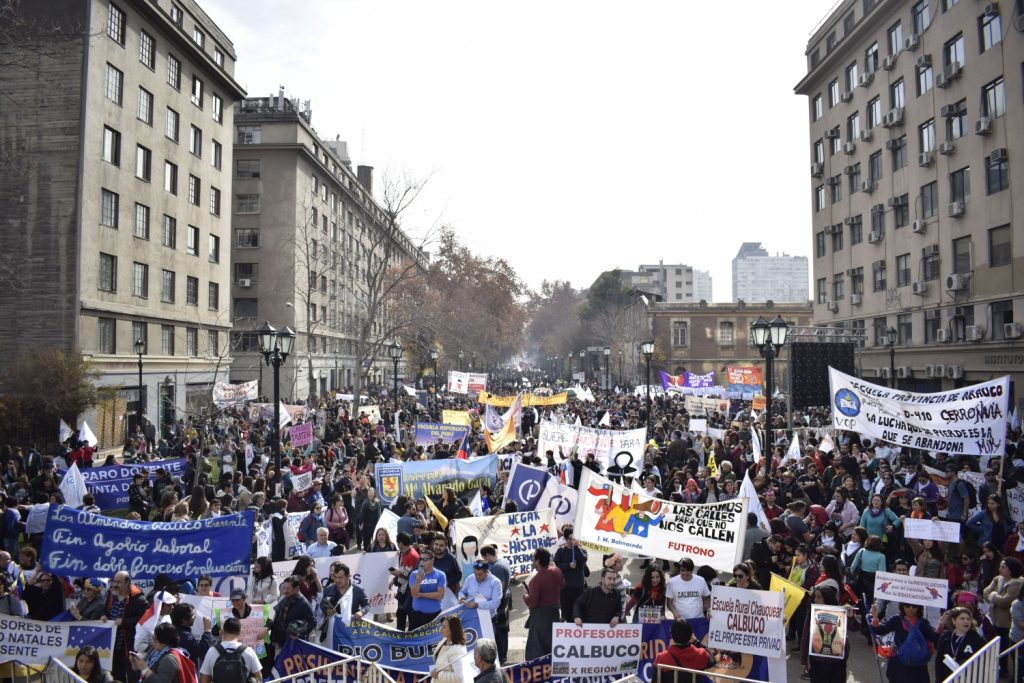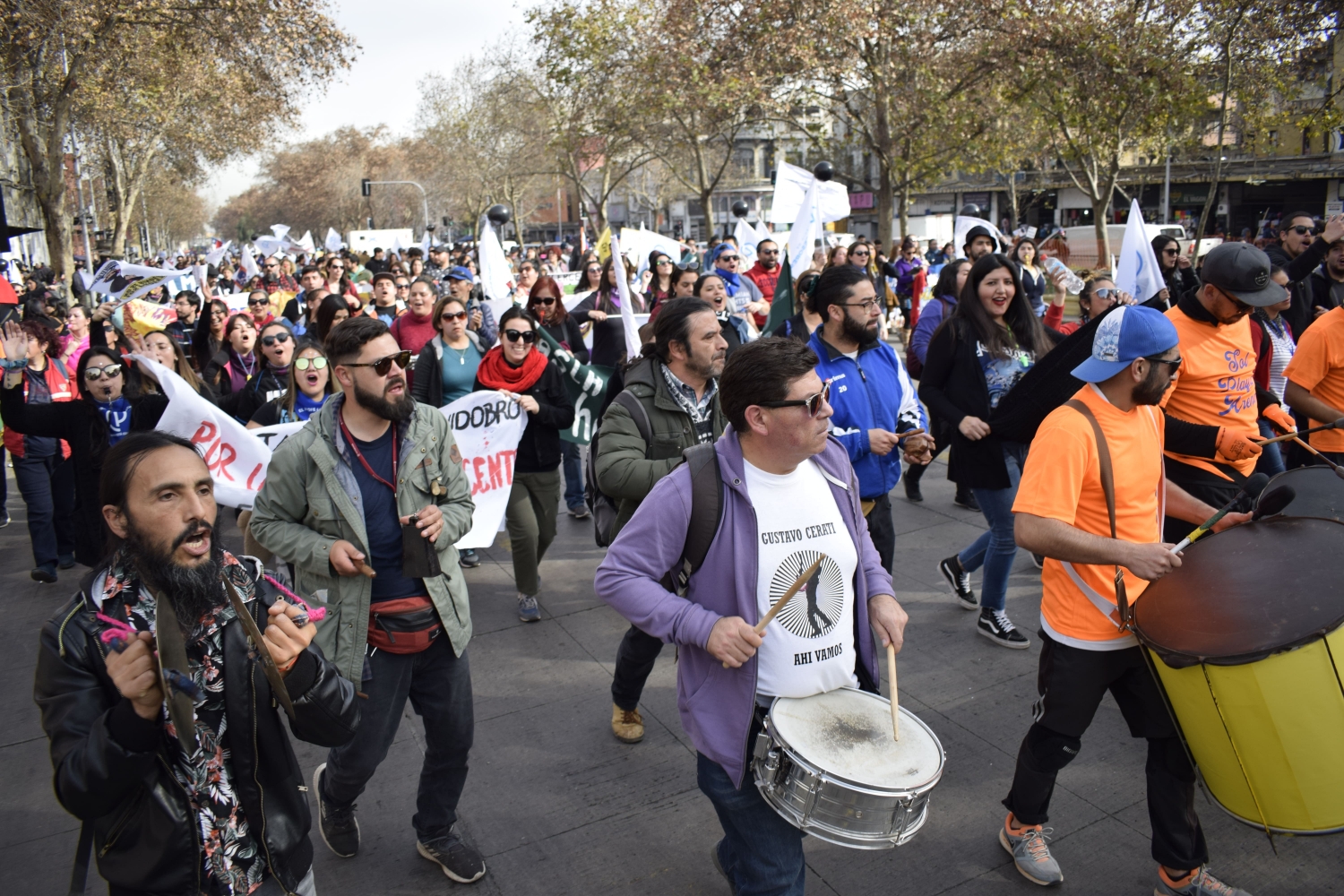Since June 3, more than 90,000 Chilean primary and secondary education teachers have been on an indefinite strike in defense of public education. The strike was called for by the national teachers’ union, the Colegio de Profesores de Chile (CPC).
On June 24, hundreds of teachers demonstrated outside the La Moneda Palace, the seat of the President, to condemn various cases of police repression which occurred throughout the country against peacefully protesting teachers. At the government headquarters, the union leaders of the CPC delivered a complaint letter addressed to the Minister of the Interior and Public Security, Andrés Chadwick Piñera. The letter mentioned the serious case of the teachers in Copiapó who were arrested and stripped naked by the officials of the national police unit Carabineros for participating in a demonstration on June 20.
As a part of the mobilization plan for the fourth week, on June 26, the CPC has called to hold massive cacerolazos throughout the country. Cacerolazo is a form of protest in which people make noise by banging pots, pans, and other utensils in order to call for attention. The CPC has called for the cacerolazos between 8 pm to 8:30 pm in public squares, at trade unions’ centers and outside schools. The union has also urged common people as well as national and international activists, artists and organizations to continue extending their support and join them in the cacerolazos.
For the last three weeks, teachers across Chile have been continuously mobilizing demanding better working conditions, infrastructural improvement of public school establishments, payment of the long-standing teachers’ debt and against the curriculum changes recently announced by the Ministry of Education. The modifications make subjects like History, Physical Education and Arts optional instead of compulsory for third and fourth grade from next academic year onwards.
The payment of special bonus to special educators and primary teachers, elimination of the double assessment process of teachers before employment, employment with permanent contracts, end to violence against educational workers, and withdrawal of the anti-student “safe-classroom” bill are some of their other demands.
Last week, on June 20, a massive mobilization was carried out in the Chilean capital Santiago demanding definite solutions to their demands and a direct meeting with the education minister, Marcela Cubillos. Over 90,000 teachers from all over Chile traveled to the capital to join the Gran Marcha Docente or the Great Teachers’ March. At the closing ceremony of the mobilization, famous Chilean musician Anita Tijoux performed and expressed her solidarity with the teachers’ cause.

The teachers’ movement is constantly growing in strength. The number of people who mobilized on June 20, was much higher than the ones carried during the first two weeks of the national teachers’ strike (on June 11 in the city of Valparaiso and on June 6 in Santiago).
The striking teachers and the CPC are receiving immense support from several renowned Chilean personalities. On June 19, in a demonstration to reject the curriculum changes at the Museum of Memory and Human Rights, the demonstrators were joined by renowned historian and the receiver of the National History Award, Gabriel Salazar; famous actor and comedian, Daniel Alcaíno; writer of bestselling novels, Jorge Baradit; famous musician Francisco Villa; the president of the Coordinating Confederation of Trade Unions, Manuel Díaz; and the member of social and women’s organization Coordinadora Feminista 8M, Katherine Bachmann.
Several social, women, human rights and students’ organizations as well as trade unions and left-wing political parties have also expressed their support for the teachers’ strike and their demands.
While the government of President Sebastián Piñera has yet to respond with an appropriate solution to the teachers’ claims, the strike continues. On June 17, more than 45,000 teachers from 237 communes took part in the national teachers’ consultation organized by the CPC and rejected the proposal made by the Ministry of Education with an overwhelming majority of 91.07% of votes. Mario Aguilar, the president of the CPC explained that the proposal was rejected because it only addressed to 5 of the 12 demands raised by the union. He also informed that the government expressed no desire to negotiate on the curriculum changes, a measure that is being strongly condemned nationally.





